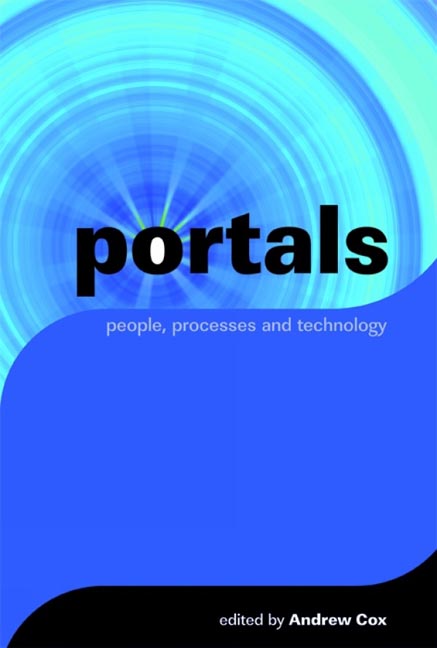Section 2 - The library and the portal
Published online by Cambridge University Press: 09 June 2018
Summary
The activities of information professionals that are related to portals are:
• Guiding users to find the best portal to meet their information need, and also using subject portals in information inquiry work themselves.
• Organizing information sources for information service users, through web directory websites – in effect portals – encompassing both free internet services and library subscriptions to web resources.
• Contributing content to organizational portals, e.g. news streams, and input to the design of the portal from the information perspective (e.g. designing taxonomies).
• Involvement in building major public portals on the open web.
The chapters in this section explore aspects of these themes. Winship looks outwards from the organization at web portals, web subject portals and search engines exploring trends in the aggregation of functions and tools, partly as a guide to help information professionals in their information inquiry work, also with a view to informing organizations about what functions they will find it useful to develop in their own portals. This reflects the sense that organizations are constantly learning from – or, more frankly, being pushed along by – the great sandbox that is the web. MacColl's chapter beautifully captures the evolution of one library's response to the need to organize the expanding universe of web-based information sources for its users. In itself this experience tells us much about the evolution of the portal concept in general. Davies's chapter explores the development of specialist library portal software.
It may be useful in the context of the volume as a whole to reflect further on the character of library portals as a concept. As ever with the word portal there is a certain haziness in the library portal idea. The core function of the commercial products sometimes referred to as library portals comprises tools to cross-search multiple databases from one search string, generally using Z39.50 as a search protocol (Library of Congress, 2005).
- Type
- Chapter
- Information
- Portalspeople, processes and technology, pp. 77 - 80Publisher: FacetPrint publication year: 2006



